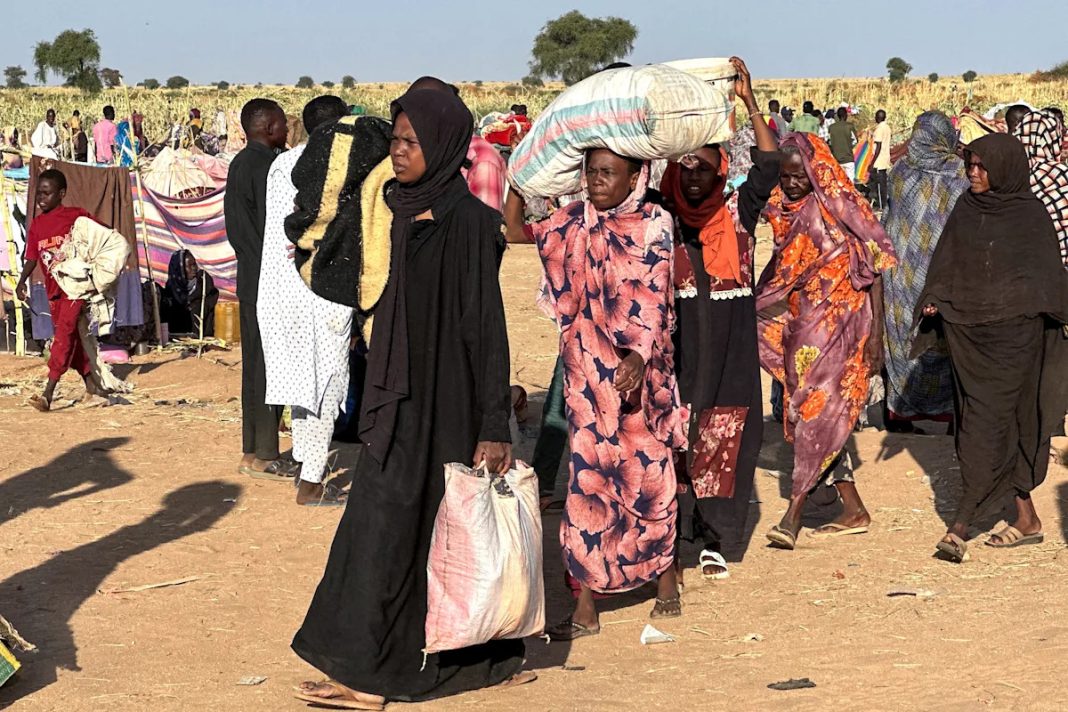More than 4,500 people have fled Sudan’s North Kordofan state as the paramilitary Rapid Support Forces (RSF) escalate their violent attacks against civilians there and in neighbouring North Darfur’s el-Fasher, a Sudanese medical organisation says.
Field reports from the Sudan Doctors Network, which emerged on Friday, indicated that nearly 2,000 people have successfully travelled from the Bara locality, which the RSF recaptured last week, to the state capital of el-Obeid, about 60 kilometres (37 miles) to the south.
The rest, however, “remain en route under harsh conditions and facing severe shortages of food, water, and shelter,” the organisation said in a statement, adding that North Kordofan faces a “deteriorating security situation”.
The city of Bara has been a key node of fighting between the RSF and the government-aligned Sudanese Armed Forces (SAF) for months. In July, the RSF raided and set fire to North Kordofan villages in an attack that killed nearly 300 people, including children and pregnant women.
SAF took control of Bara in mid-September, but by last week, it was back in the hands of the RSF.
The exodus comes as the RSF commits a wave of atrocities in el-Fasher, the capital of North Darfur state to the west of North Kordofan, including mass killings of more than 1,500 people, summary executions and rapes.
Although more than 36,000 people attempted to escape el-Fasher, the majority of civilians remain trapped in the city. Survivors have counted children killed before their parents and their bodies strewn in the streets.
Al Jazeera has verified multiple videos that document RSF troops standing over piles of dead bodies and executing a row of unarmed young men.
Widening conflict
Experts warn that the RSF’s seizure of el-Fasher – where the paramilitaries had cut off food and medicine access for nearly 18 months – could embolden them to commit similar atrocities in North Kordofan.
Bakry Eljack, a public policy professor and Sudan and South Sudan expert at Long Island University Brooklyn, told Al Jazeera that “the RSF has been out of control” and, as has been “borne multiple times, they need to control their soldiers”.
RSF leader Mohamad Hamdan “Hemedti” Dagalo said on Wednesday he would form an inquiry committee to investigate “violations” by his soldiers in el-Fasher – a promise panned by experts.
“If we don’t do anything about this, it’s not going to end in el-Fasher, it’s going to expand to North Kordofan,” Eljack said. “There’s no guarantee what we’ve seen in el-Fasher is not going to be repeated somewhere else.”
The ruinous civil war broke out in 2023, when a power struggle between the RSF forces and the SAF prompted fighting in the capital, Khartoum.
Since then, the RSF has taken control of more than a third of the country in a conflict that has killed tens of thousands and displaced 12 million, nearly a quarter of its population, becoming the world’s largest humanitarian crisis, according to the United Nations.
In an emergency session of the UN Security Council on Thursday, the United Nations’ assistant secretary-general for Africa, Martha Pobee, called the takeover of el-Fasher “a significant shift in the security dynamics” in the region, citing escalating fighting in North Kordofan.
“The territorial scope of the conflict is broadening,” she said.

